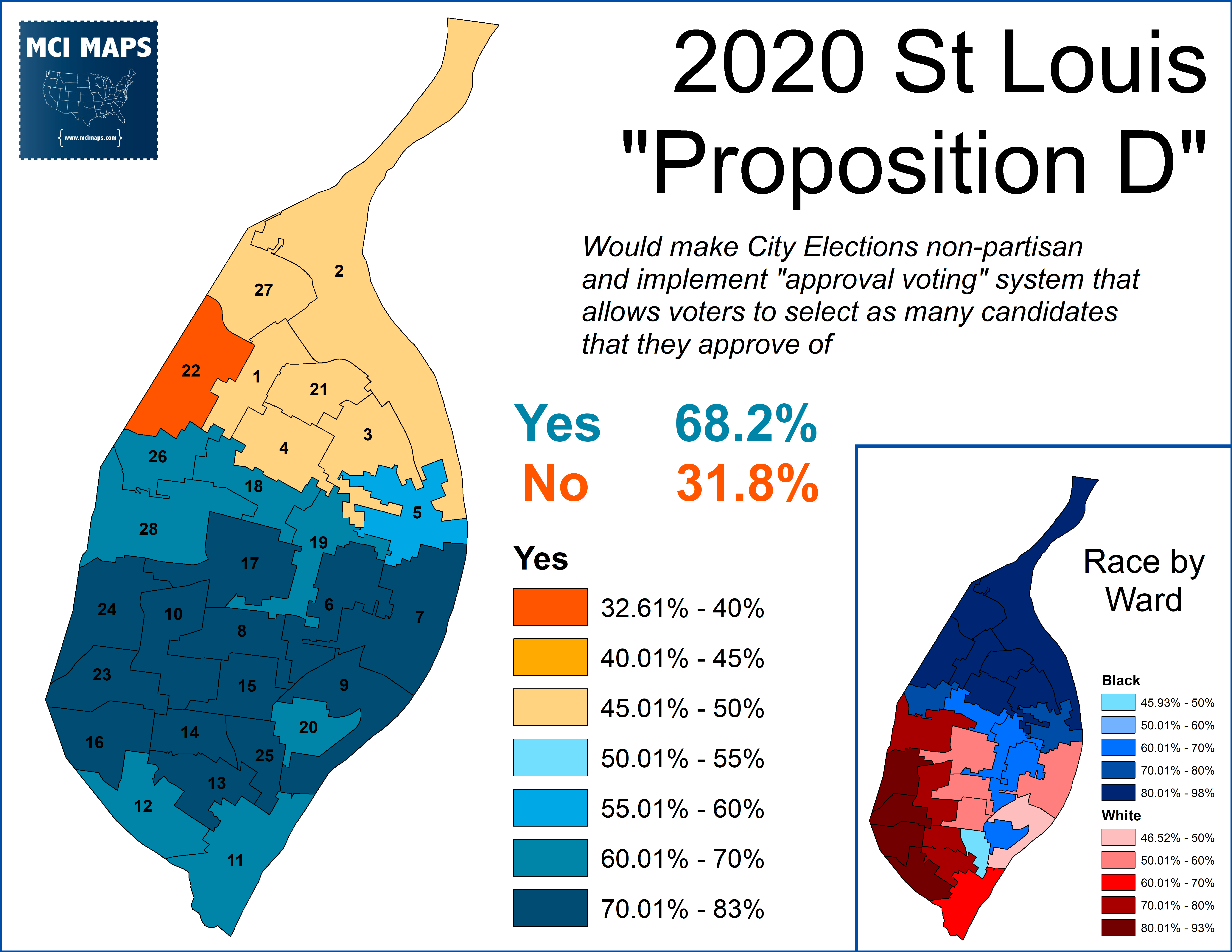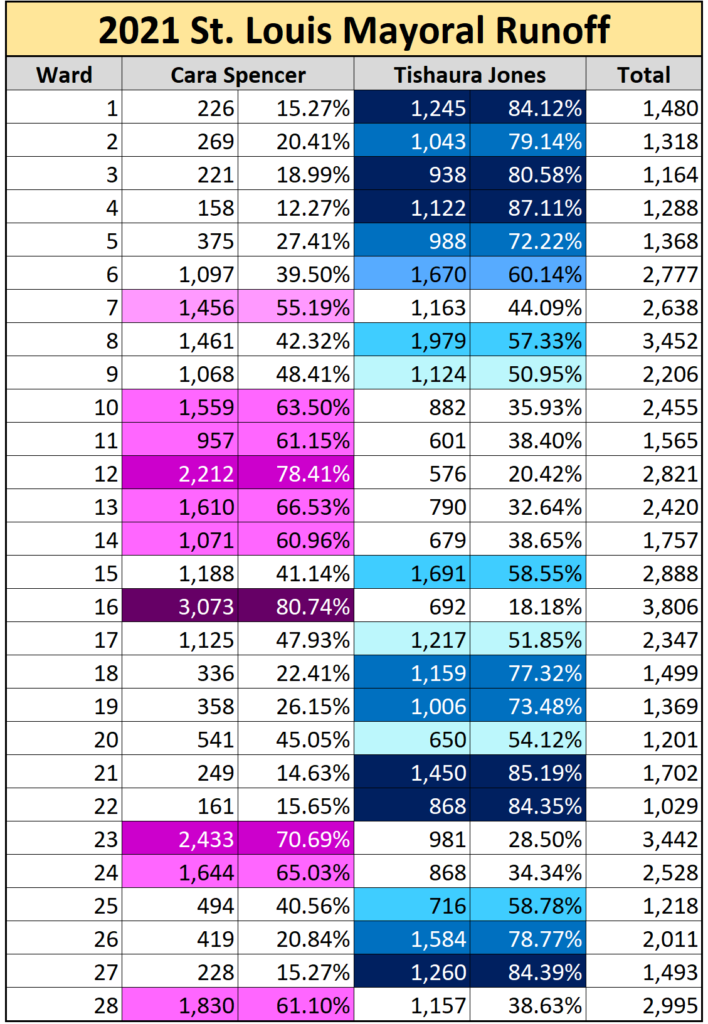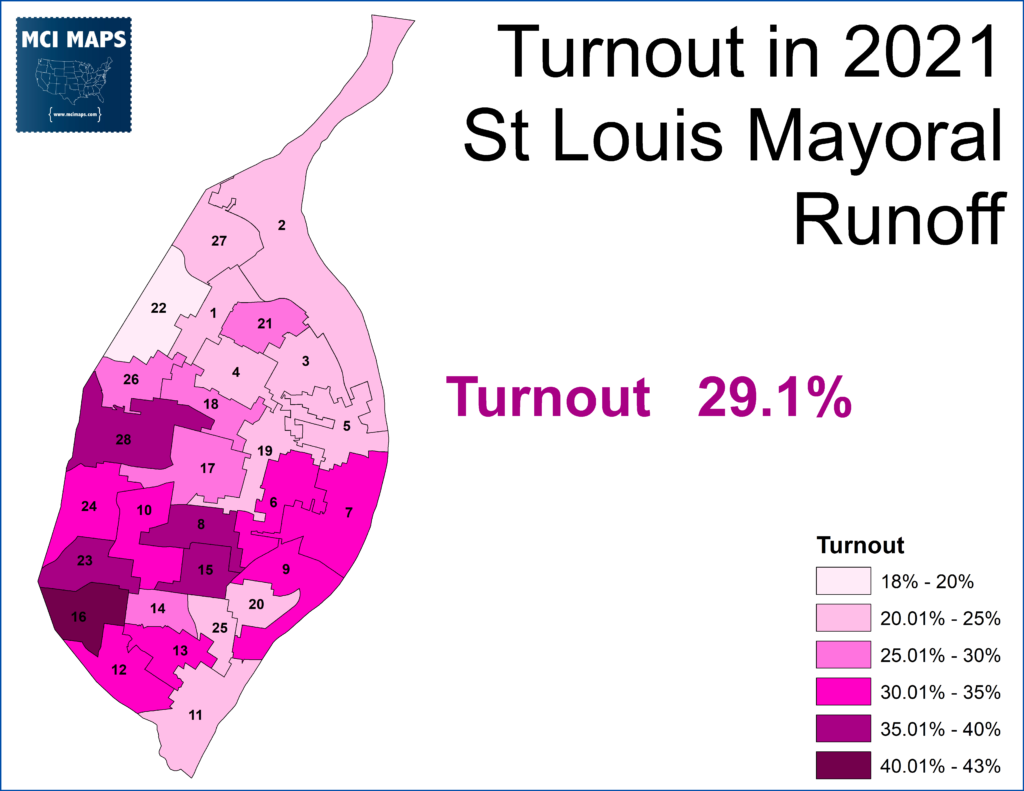(Note: This original article was written on March 4th, after the mayoral primary had taken place. The post has been updated at the end of the article with results from the runoff).
St. Louis, MO held its mayoral primary two days ago. What made it especially notable was that it held its election under a new voting system – known as “Approval Voting.” A system that allows voters to cast as many votes for candidates they like, and the two with the most votes advance to a runoff.
In the 2017 primary, a white moderate, Lyda Krewson, narrowly won a democratic primary with just 32% of the vote – edging out three other prominent African-American candidates. (Map via DailyKosElections).
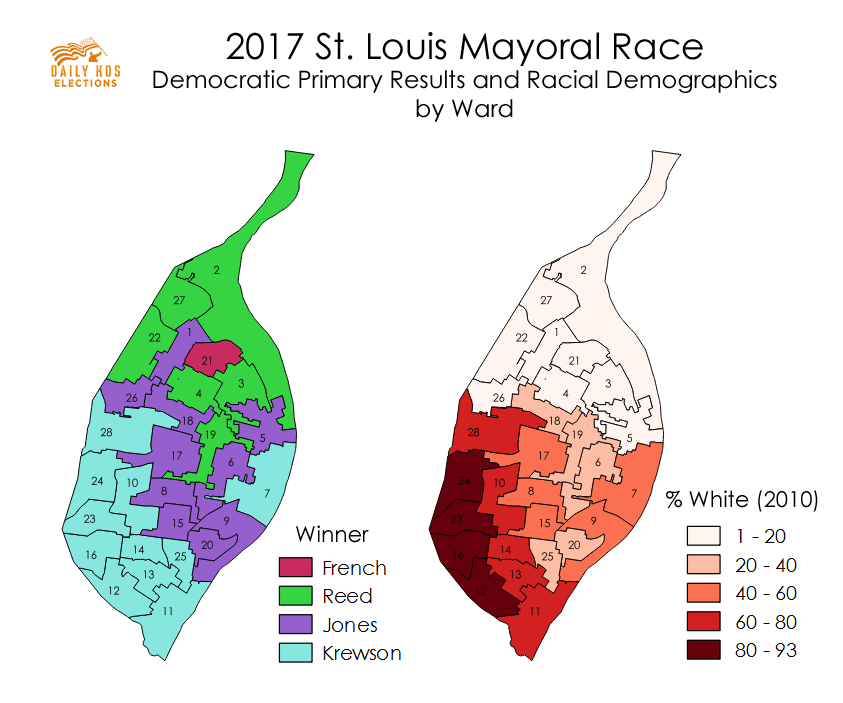
Krewson’s closest contender was Tishaura Jones, who got 30%. Lewis Reed was further back at 18%. Both are running for Mayor this year.
This result created a greater call for reform – with a runoff or ranked-voting getting talk. A different reform, proposal, however, would come forward.
Proposition D
In November of 2020, St. Louis Voters approved “Proposition D,” which reformed how elections would be done in the city. Before Prop D, elections were partisan. Democratic primaries, easily won by someone with under 50% of the vote, were the real contest, with generals being formalities in the deep-blue city. Prop D made three big changes.
- Made city races non-partisan
- Instituted the “Approval voting system” – which allows voters to mark as many candidates as they approve of.
- The two candidates with the most approval votes go into a runoff
If you still need a clarifying how this works – let CGP Grey show how it can be used to pick where a group goes to lunch
The measure was supported by the League of Women voters and other government reform groups. However, it was opposed by the African American Aldermanic Caucus – who argued it would create faux consensus candidates who aimed to alienate few (a fair point). The pro-D side did, however, have support from a prominent African-American politician with Tishaura Jones, who had lost that razor-thin 2017 primary and was still city treasurer.
The measure easily passed when election day came around, with 68% supporting the reform. There was, however, a clear hesitance in the African-American community. Opposition wasn’t overwhelming, with many heavily-black wards only narrowly opposing the measure – but it still stands in stark contrast to the support in whiter wards.
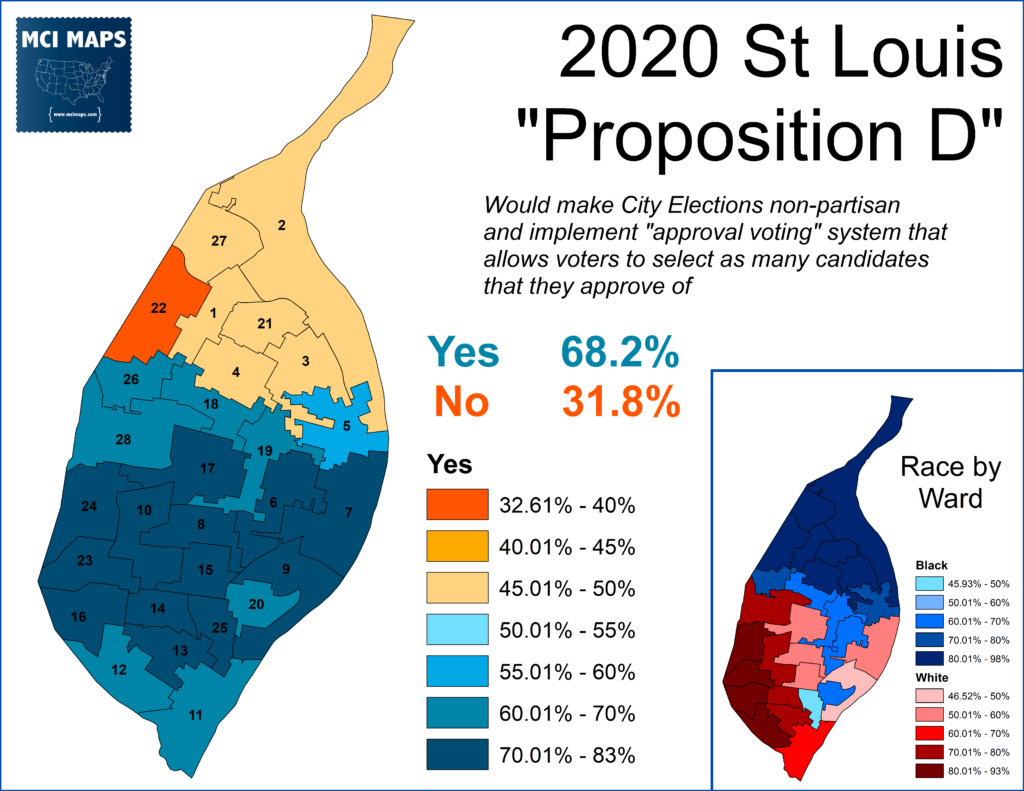
With the passage, the 2021 city elections, including mayor, would be held under approval voting.
The 2021 Mayoral Primary
Incumbent Mayor Lyda Krewson opted not to seek a second term. Four candidates were running for the position. The most progressive were Alderwoman Cara Spencer and Treasurer Tishaura Jones. Aldermanic President Lewis Reed and utility executive Andrew Jones were more moderate. Spencer is white and all other candidates are African-American. Progressives were eager for a left win after the narrow loss in 2017. Their goals were reached when both Jones and Spencer secured runoff positions.
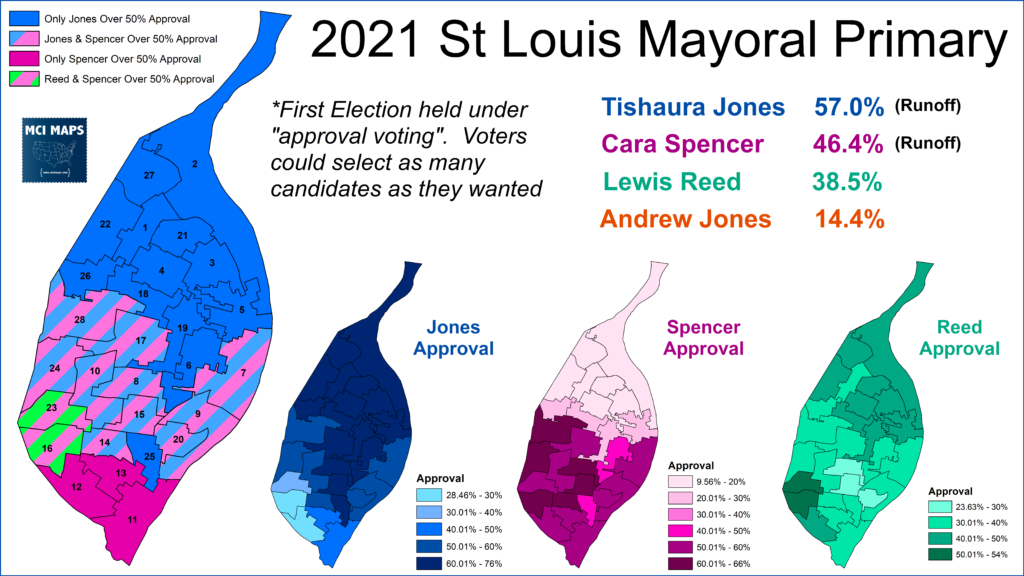
Jones was the largest vote getter in the process. She dominated in the more African-American north but still had decent vote totals across the southern white wards (only falling below 30% in two of them). Spencer, meanwhile, did strong in the south but had very weak support in the African-American wards. Reed, meanwhile, had support than blended across the city, but because he didn’t dominate in the North likes Jones or south like Spencer, he couldn’t move past third.
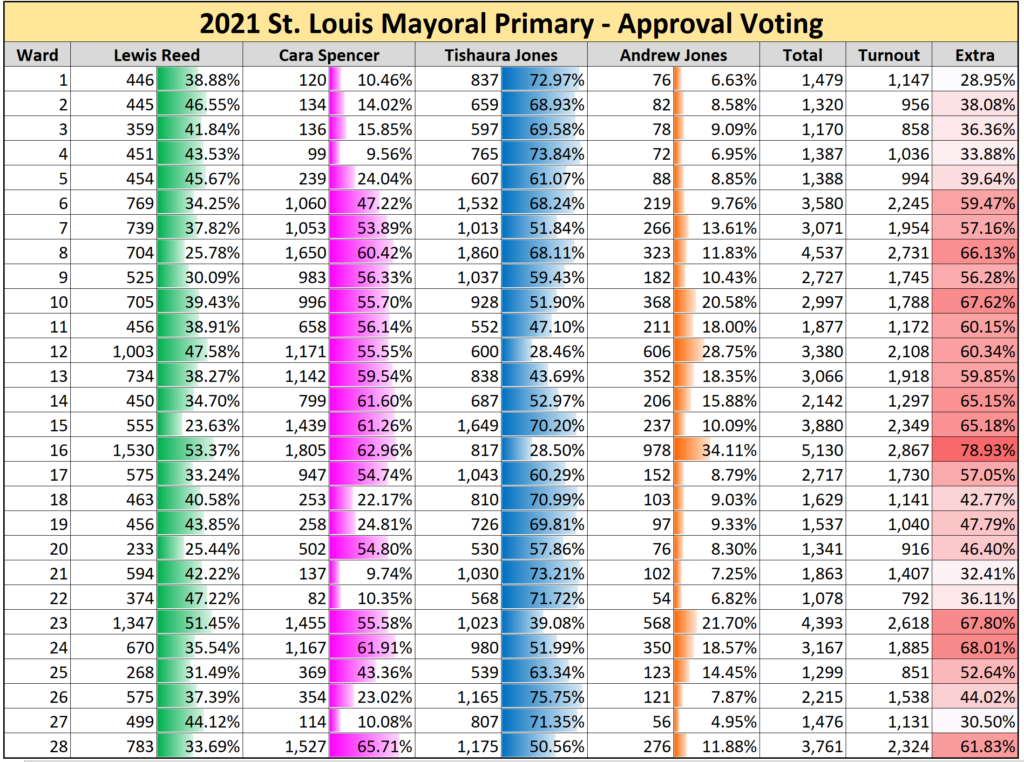
As the rules of approval voting lay out, a voter can select one or all of the candidates. Voters decide how many “extra vote” (as I’m calling it) they give. There was, however, a clear divide in the city. The whiter wards offered far more “extra votes” than the African-American wards did. In other wards, many African-American wards only picked one candidate. It appears many Jones voters may have gone for just her and not thrown their support to anyone else. (This could also be the case with Reed voters).
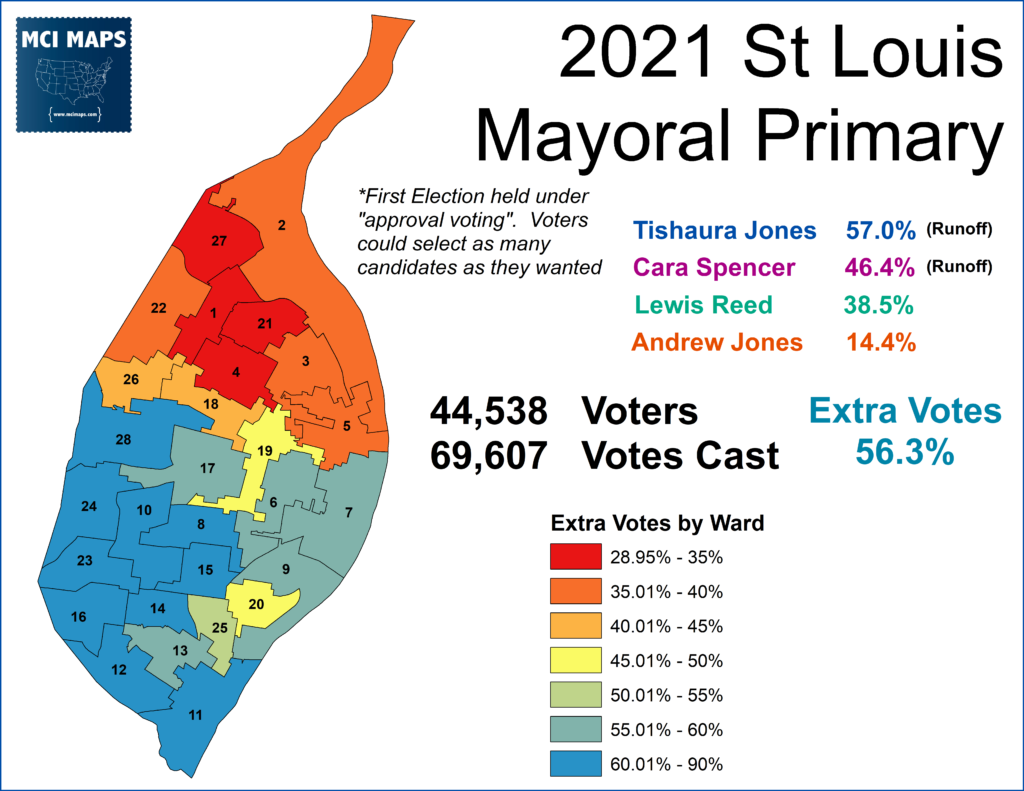
As was already noted, the African-American community was less supportive of Prop D in 2020 and there was plenty of unease from many politicians going into the primary. There could be a few reasons for this notable discrepency.
- A rejection of the approval system (I will only vote for one by choice)
- A lack of other candidates the voters liked
In the 2017 Mayoral primary, Jones and Reed did well in the northern wards. However, Reed was more moderate than Jones and in the last four years, a desire to ensure a more liberal government has grown in the cities – including St. Louis. Voters of the northern wards, eager for policing reform that Jones supports, may have opted to give Jones their loan support.
With the primary over, Jones and Spencer will advance to a runoff in April. Based on the primary, Jones has a strong chance to win. She commanded the most votes in the primary by a solid margin – dominating in the north but also doing well in the south. She led Spencer in most wards in the city.
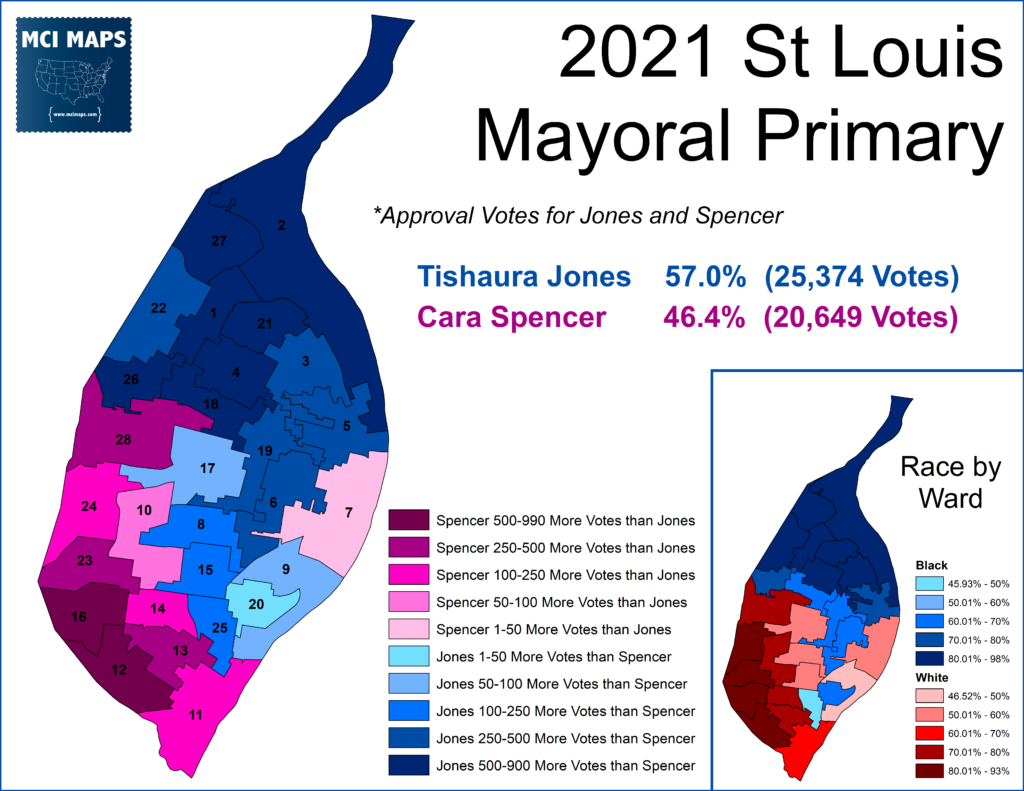
Of course, turnout for the runoff will matter. Who shows up in April could result in different “approval levels” for the candidates.
(Update) Runoff Results
The runoff for mayor took place just a few days ago (On April 6th) and it was indeed a Jones who pulled off a narrow win. Jones absolutely dominated in the northern base of the city, while Spencer was much stronger in the whiter southern wards.
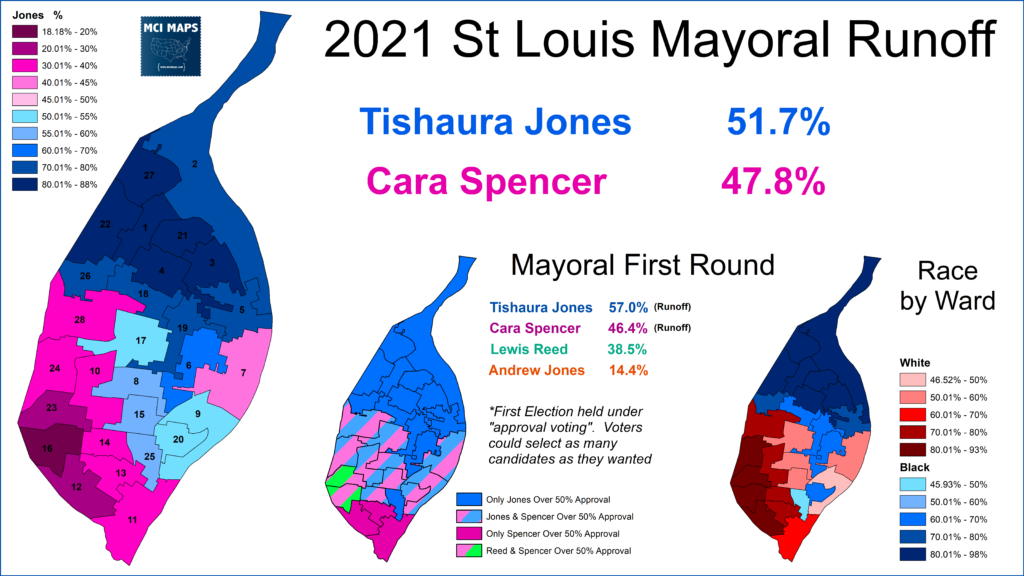
The race ended up being decided on heavily racially polarized grounds. Jones only won in some of the more modestly white wards, while Spencer trailed badly in the northern black communities.
Jones won far more wards, but the race was very close thanks to a strong turnout disparity. The upper wards that Jones dominated in had very weak turnout. Meanwhile many of the white suburbs had turnout 1.5x to 2x higher.
Jones’ election makes her the first African-American female mayor in St Louis history, and she is a much more liberal politician than than the person she will be following.

